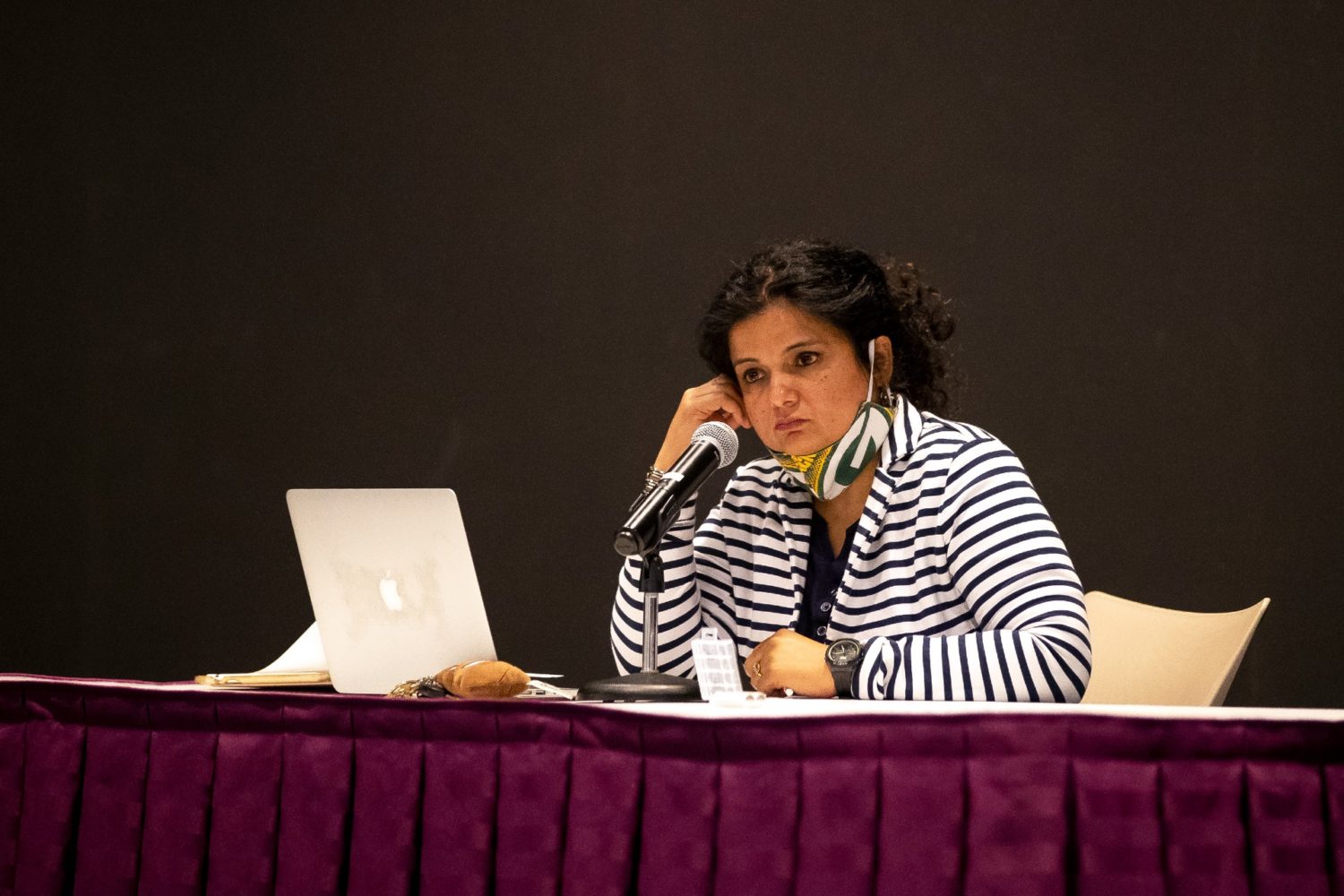

Dr. Pooja Bambha-Arora, chair of Brown County’s Racial Equity Committee, said there’s a lot of work to be done before the ad-hoc committee can offer recommendations to the county board in two years.
Bambha-Arora said she spends nearly 30 hours a week networking and searching for tools and data that could be useful for strengthening racial equity in Brown County. One of her top concerns is making sure that the committee can find representation to speak on the many issues that need to be addressed in the county.
Bambha-Arora, who’s lived in Green Bay for six years, is an adjunct faculty at Northeast Wisconsin Technical College and will teach at the University of Wisconsin-Green Bay in the fall, where she will teach courses on cultural elements and institutional racism.
“The first thing that we want to do is collaborate with care,” she said. “I do want to position ourselves in a very collaborative way and partner with other organizations to push this — to push the envelope for having more information and awareness.”
Although the committee was just formed this spring, Bambha-Arora’s commitment to diversity, equity and inclusion goes way back. Bambha-Arora immigrated to the U.S. in 2005 from Haryana, India where she taught high school English. She went on to continue her studies at the State University of New York at Buffalo, where she was the only person of color in many of her classes. Bambha-Arora remembers being asked by her fellow students if she would be studying to teach English as a second language (ESL) just because she had recently immigrated. She also said she was once asked if she would change her name to something more English-sounding to better fit in. The microaggressions she faced along the years inspired her to focus her PhD on culturally responsive teaching.
“This issue is very close to my heart based on personal lived experiences,” she said, adding that her background in teaching and researching race, class and gender in education has prepared her to lead the Racial Equity Committee.
Since moving to Wisconsin in 2015, Bambha-Arora said she’s seen an even greater need for strategic diversity and inclusion efforts. Outside of teaching, she offers voluntary consultation to local nonprofits and businesses.

“Wisconsin needs a lot more work,” she said.
One area of inequity that Bambha-Arora highlighted was immigration. In 2019, Green Bay was home to over 10,000 immigrants, according to Census data. The majority of those residents are from Latinx and Asian communities.
“Just imagine the pressure that people have to make a new life as an immigrant,” Bambha-Arora said, noting that microaggressions towards the Asian American community have been at an “all-time high” recently.
“There’s a lot of work in terms of the awareness that needs to be done to understand the cultural framework of the Asian community,” she said.
The Brown County Board attempted to declare racism as a public health crisis earlier this year, but came just short, changing the language of the resolution at the last moment to simply declare a need to work toward equity. To get the ball rolling, the Racial Equity Ad Hoc committee has two years to provide the county board with recommendations for addressing the inequity in the area.
“I do think this should be a permanent committee,” Bambha-Arora said, “but when we look at the time we have, I do want to maximize it. How do we normalize these conversations, that racism exists and also bring in data and qualitative, quantitative and personal stories.”
Alongside Bambha-Arora, the committee includes Vice Chair Rashad Cobb, Secretary Louise Pardon, Carina Abrego-Koch, Jose Villa, Tara Yang, County supervisor Megan Borchardt, County Supervisor Amanda Chu and County Board Chair Patrick Buckly.
“We’re all bringing a lot of talent and expertise,” Bambha-Arora said.
One of the first steps that the committee is considering is joining the Government Alliance on Racial Equity or G.A.R.E. which is a national alliance that supports local governments striving to achieve racial equity. With guidance from an alliance like G.A.R.E. The committee will be offered a template on how to tackle all the work that needs to be done before its two years are up.
“I feel very honored to do this,” Bambha-Arora said. “I feel very proud, and very thankful for this opportunity to be able to get some work done.”



